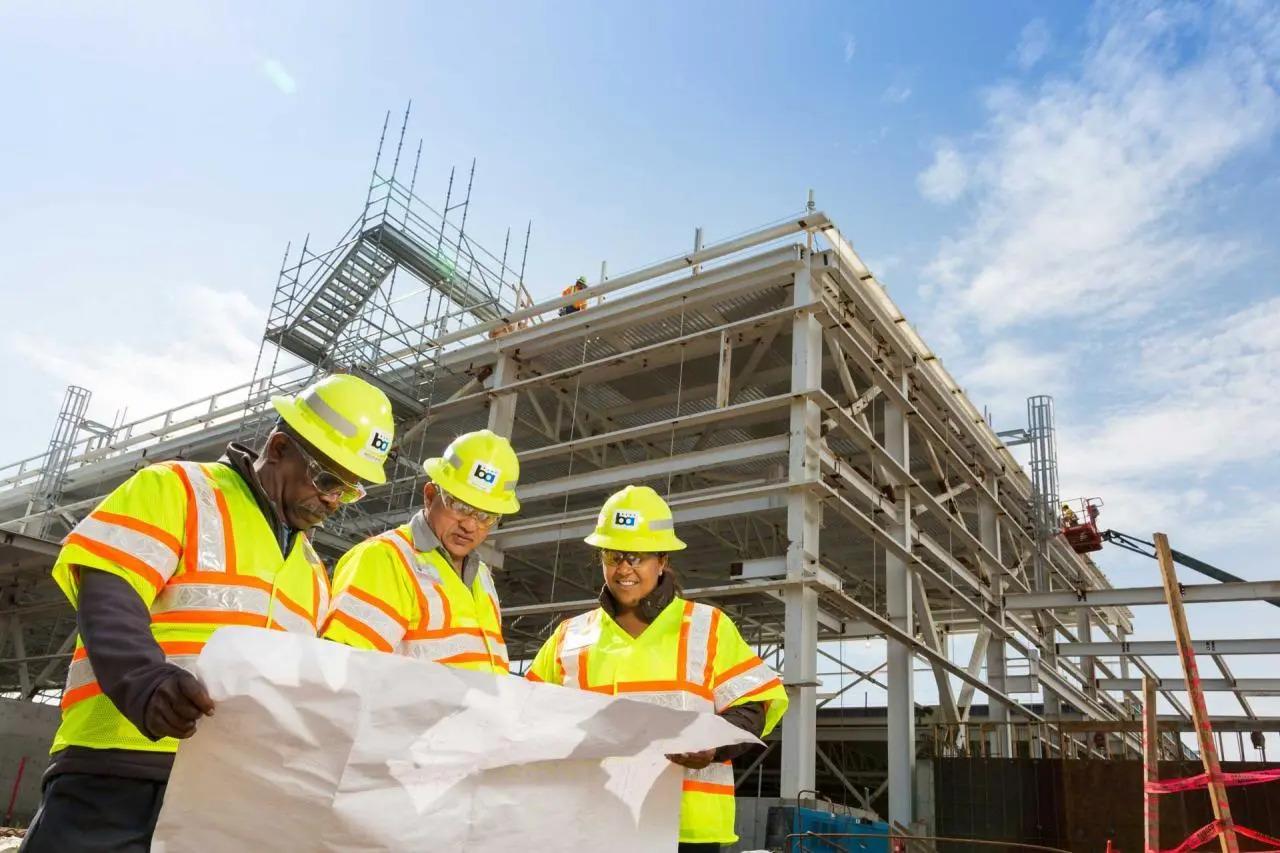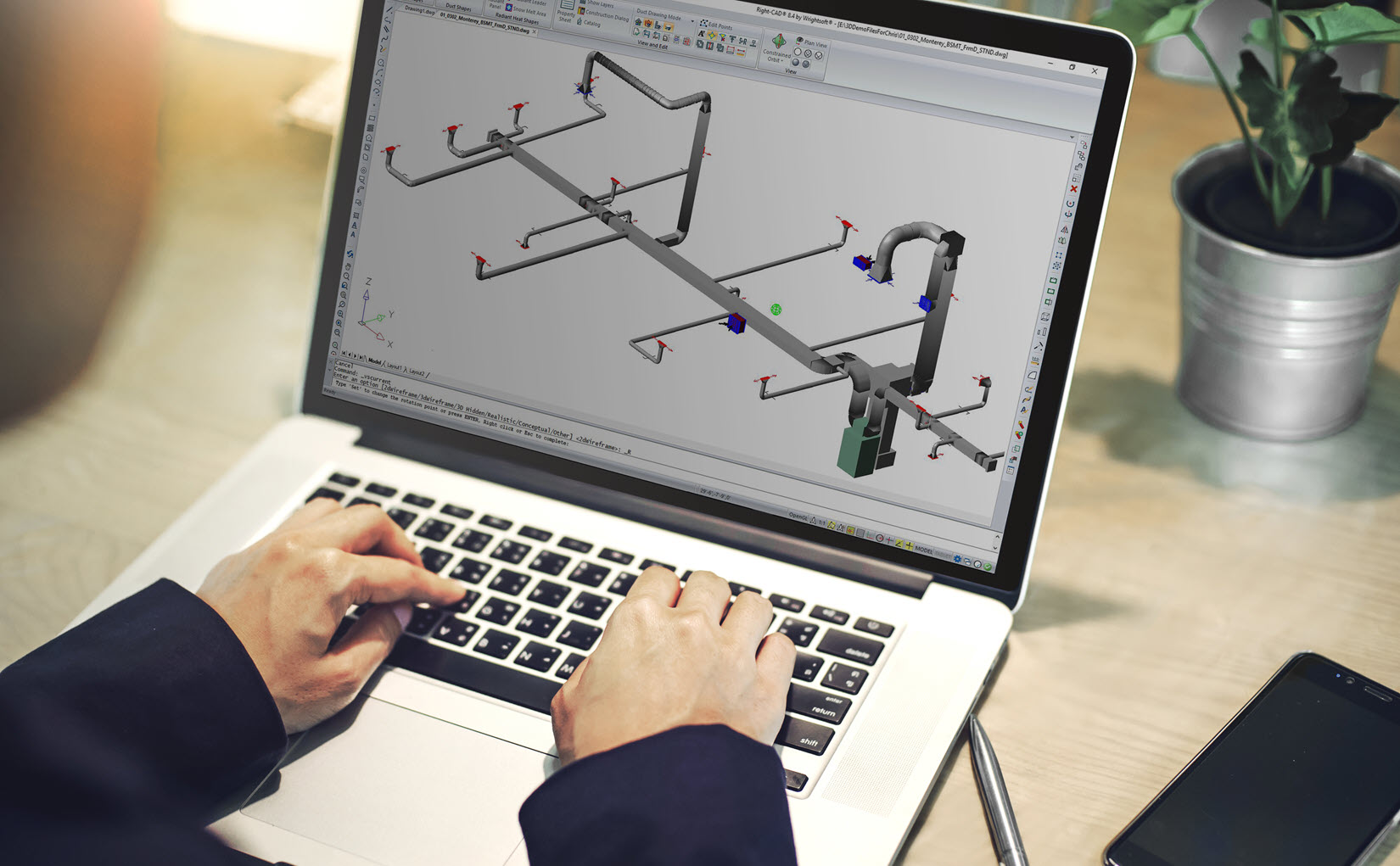Home>diy>Building & Construction>How To Learn Construction


Building & Construction
How To Learn Construction
Modified: September 1, 2024
Learn the ins and outs of building construction with our comprehensive guide. Discover essential tips, techniques, and resources to master the art of construction.
(Many of the links in this article redirect to a specific reviewed product. Your purchase of these products through affiliate links helps to generate commission for Storables.com, at no extra cost. Learn more)
Introduction
Welcome to the world of construction! Whether you are considering a career in the field or simply want to expand your knowledge, learning about construction can be an exciting and rewarding experience. Construction is a vast industry that involves designing, planning, and constructing buildings and infrastructure. It requires a combination of technical skills, practical knowledge, and creativity.
In this article, we will explore the basics of construction and provide you with valuable insights on how to learn and excel in this field. From understanding construction materials and techniques to reading plans and ensuring safety, we will guide you through the essential aspects of construction.
So, let’s get started on this journey of discovery and mastery in the world of construction!
Key Takeaways:
- Embrace continuous learning, practical experience, and networking to excel in the dynamic construction industry. Stay updated with industry trends, prioritize safety, and build a strong foundation for a successful career.
- Master construction tools, read plans, and understand materials and techniques. Pursue apprenticeships, enroll in training programs, and prioritize professional development to thrive in the diverse field of construction.
Read more: How To Learn Construction Trades
Understanding the Basics of Construction
Before diving into the specifics of construction, it’s important to have a foundational understanding of the industry as a whole. Construction involves the process of creating structures, such as buildings, bridges, roads, and more, from the ground up. It encompasses a wide range of disciplines, including architecture, engineering, project management, and skilled labor.
One of the key components of construction is project planning. This involves creating a detailed blueprint of the structure, including its dimensions, materials, and design specifications. Proper planning ensures that the construction process runs smoothly, minimizes errors, and maximizes efficiency.
Construction projects are typically divided into different phases, starting with site preparation and foundation work. This includes clearing the land, leveling the ground, and laying the groundwork for the structure. The next phase involves constructing the skeleton of the building, which includes erecting walls, floors, and roofs.
Once the structure is in place, the focus shifts to the interior and exterior finishing. This includes installing electrical and plumbing systems, adding insulation, applying finishes to walls and floors, and adding final touches like painting and landscaping.
Construction also involves the use of various materials and equipment. Understanding the properties and characteristics of different construction materials is essential for ensuring the structural integrity and longevity of the building. Common materials include concrete, wood, steel, and brick, each with its unique advantages and applications.
Furthermore, construction work requires the use of a wide range of tools and equipment to carry out tasks efficiently and safely. These tools can range from basic hand tools like hammers and screwdrivers to heavy machinery such as excavators and cranes. Familiarizing yourself with these tools and their proper usage is crucial for successful construction work.
As you delve deeper into construction, you will also encounter various regulations and safety standards that need to be adhered to. These regulations ensure the safety of workers, protect the environment, and maintain quality standards. Understanding and following these regulations is essential for any successful construction project.
Now that you have a basic understanding of construction, we will explore various aspects of construction in further detail. The next section will focus on building a strong foundation, both literally and figuratively!
Building a Strong Foundation
In construction, a strong foundation is crucial for the stability and longevity of any structure. This applies both literally in terms of the physical foundation of a building and metaphorically in terms of the knowledge and skills a construction professional needs to succeed.
Let’s start by discussing the physical foundation. The foundation is the base on which a structure rests and transfers its load to the ground. It provides support and stability, preventing settlement, shifting, or collapse. Foundations can be made of various materials such as concrete, stone, or steel, depending on the type of structure and the soil conditions.
When building a structure, it’s important to consider the soil conditions and conduct proper soil testing. This helps determine the type of foundation suitable for the site and ensures its stability. A thorough understanding of foundation design and construction is essential to ensure that the structure can withstand the forces it will be subjected to over time.
Metaphorically, building a strong foundation in the construction industry means acquiring the necessary knowledge and skills. This involves familiarizing yourself with construction terminology, principles, and best practices. You can start by studying construction textbooks, taking online courses, or attending workshops and seminars.
Additionally, gaining practical experience is essential to build a strong foundation. Look for opportunities to work or volunteer in construction projects. This hands-on experience will allow you to apply your knowledge, learn from experienced professionals, and understand the intricacies of the construction process.
As you build your foundation, make sure to develop your skills in areas such as project management, problem-solving, communication, and teamwork. These skills are crucial for effectively managing construction projects and collaborating with architects, engineers, contractors, and other professionals involved in the construction process.
Furthermore, keeping up with industry trends and advancements is essential for building a strong foundation. Construction techniques, materials, and regulations evolve over time, so it’s important to stay updated. This can be done by staying connected with industry publications and online resources, attending conferences and trade shows, and joining professional organizations in the construction field.
By focusing on both the physical and metaphorical aspects of building a strong foundation, you will be well-equipped to pursue a successful career in construction. In the next section, we will discuss in detail the materials and techniques used in construction.
Learning Construction Materials and Techniques
In the world of construction, a solid understanding of different materials and construction techniques is essential. Knowing the properties, applications, and limitations of construction materials and techniques will enable you to make informed decisions and execute projects effectively.
Construction materials can vary depending on the type of project, location, and environmental factors. Some common materials used in construction include:
- Concrete: Concrete is a versatile and widely used construction material. It consists of a mixture of cement, sand, gravel, and water. It is known for its strength, durability, and versatility in shaping various structures.
- Steel: Steel is recognized for its high strength-to-weight ratio, making it ideal for structural elements like beams, columns, and frames. It is also corrosion-resistant, making it a popular choice for buildings in coastal areas.
- Wood: Wood is a renewable and versatile material commonly used in residential construction. It is lightweight, easy to work with, and offers natural insulation properties.
- Brick and Masonry: Bricks, along with other masonry materials like stone and concrete blocks, are commonly used for building walls. They provide durability, fire resistance, and aesthetic appeal.
- Plastics and Polymers: Plastics such as PVC and polymers like fiberglass are used in various applications, including pipes, insulation, and roofing materials. They offer lightweight, durable, and cost-effective solutions.
Understanding the characteristics and applications of these materials will help you choose the right material for each aspect of a construction project.
Alongside materials, learning construction techniques is equally important. Some common construction techniques include:
- Traditional Construction: Traditional construction methods involve erecting a structure using materials like wood, concrete, and steel. It typically involves manual labor and traditional craftsmanship.
- Modular Construction: Modular construction involves constructing individual building components or modules off-site in a factory-controlled environment. These modules are then transported to the site and assembled.
- Green Construction: Green construction, also known as sustainable construction, focuses on using eco-friendly materials and practices to minimize the environmental impact of a project. This includes the use of renewable energy sources, recycling, and energy-efficient designs.
- Lean Construction: Lean construction focuses on minimizing waste, increasing efficiency, and maximizing value. It promotes collaborative planning, just-in-time delivery of materials, and continuous improvement throughout the construction process.
- Prefabrication and Pre-engineering: Prefabrication involves constructing components or entire building units off-site, while pre-engineering involves designing and manufacturing structural elements in a controlled environment.
By familiarizing yourself with different construction materials and techniques, you will be able to make informed decisions during the planning and construction stages of a project. The next section will delve into the importance of mastering construction tools.
Mastering Construction Tools
In the world of construction, having a good grasp of the tools and equipment used in the industry is essential. Construction tools help workers accomplish tasks efficiently and safely. Mastering these tools will not only improve your productivity but also enhance your overall construction skills.
Construction tools can be categorized into hand tools and power tools. Hand tools are manually operated and include tools like hammers, screwdrivers, wrenches, and measuring tapes. Power tools, on the other hand, are electrically or pneumatically powered and include tools like drills, saws, nail guns, and mixers.
Here are some essential construction tools you should familiarize yourself with:
- Hammer: A hammer is a versatile tool used for driving nails, removing nails, and general construction tasks. Choose a hammer with a comfortable grip and the right weight for your needs.
- Screwdriver: Screwdrivers come in various sizes and types. They are used for driving and removing screws and are essential for tasks like assembling, disassembling, and adjusting equipment.
- Power Drill: A power drill is a versatile tool used for drilling holes and driving screws. Choose a drill with adjustable speed and torque settings to accommodate different materials and applications.
- Saw: Different types of saws, such as circular saws, jigsaws, and reciprocating saws, are utilized for cutting various materials like wood, metal, and plastic.
- Tape Measure: A tape measure is a must-have tool for measuring lengths and dimensions accurately. Look for a tape measure with both metric and imperial units.
- Pliers: Pliers are used for gripping, bending, and cutting wires. They come in various types, including needle-nose pliers, adjustable pliers, and diagonal cutting pliers.
- Levels: Levels are essential for ensuring surfaces and structures are straight and level. They come in different lengths and types, including bubble levels and laser levels.
Mastering construction tools involves not only knowing how to use them but also understanding their maintenance and safety protocols. Regularly cleaning, lubricating, and inspecting your tools will extend their lifespan and ensure their proper functioning.
Furthermore, it’s important to prioritize safety when working with tools. Always wear the appropriate personal protective equipment (PPE), such as safety goggles, gloves, and ear protection. Follow proper tool handling techniques, and be aware of the potential hazards associated with each tool.
As you gain experience and expertise, you may also consider investing in more specialized tools and equipment specific to your area of construction. Continuously expanding your tool knowledge and skills will help you become a well-rounded and efficient construction professional.
The next section will focus on the importance of reading and interpreting construction plans, a critical skill for any construction project.
Read more: How To Learn Plumbing
Reading and Interpreting Construction Plans
Construction plans are essential blueprints that provide detailed information about a construction project. Being able to read and interpret construction plans is a crucial skill for anyone involved in the construction industry. It allows for accurate communication, precise execution, and successful completion of construction projects.
Construction plans typically include various components, each providing specific information about different aspects of the project. Here are some key elements you should be familiar with:
- Site Plan: The site plan shows the overall layout of the construction site, including the building’s position, access points, utility connections, and landscaping.
- Architectural Drawings: These drawings depict the design and layout of the structure, including floor plans, elevations, and sections. They show dimensions, room placement, windows, doors, and other architectural features.
- Structural Drawings: Structural drawings focus on the building’s framework and load-bearing components. They detail the size, shape, and placement of structural elements like beams, columns, and foundations.
- Mechanical, Electrical, and Plumbing (MEP) Plans: MEP plans illustrate the placement and connections of mechanical, electrical, and plumbing systems, including heating, ventilation, air conditioning, electrical wiring, and plumbing pipes.
- Construction Details: Construction details provide specific instructions on how different components and materials should be constructed and installed. This includes details for walls, windows, doors, stairs, and other architectural features.
When reading construction plans, it’s important to pay attention to symbols, abbreviations, and scales used. Symbols represent specific elements, such as plumbing fixtures or electrical outlets. Abbreviations help condense information without sacrificing clarity. Scales indicate the proportion between the drawing and the actual size.
Interpreting construction plans requires a solid understanding of construction terminology and concepts. Familiarize yourself with terms related to architectural, structural, and MEP components. Study the symbols and abbreviations commonly used in construction plans, as they convey important information about materials, dimensions, and specifications.
Additionally, being able to visualize three-dimensional objects from two-dimensional drawings is crucial. Take the time to study diagrams, elevations, and section drawings to develop this skill. This will enable you to understand how the different components come together to create the complete structure.
Regular practice and exposure to various construction plans will improve your ability to read and interpret them accurately. Consider seeking mentorship or taking courses that focus on construction plan reading to refine your skills further.
By mastering the art of reading and interpreting construction plans, you will be able to effectively communicate with architects, engineers, and other construction professionals. This will ensure that projects are executed according to the design intent and specifications, resulting in successful and well-executed construction projects.
The next section will discuss the importance of construction safety and regulations.
Construction Safety and Regulations
Safety is paramount in the construction industry. Construction sites can be hazardous, with various potential risks and dangers. Therefore, strict adherence to safety regulations and best practices is essential to ensure the well-being of workers and the success of construction projects.
Construction safety involves identifying potential hazards, implementing preventive measures, and providing proper training and equipment to mitigate risks. Some common safety concerns in construction include falls from heights, electric shock, falling objects, and exposure to hazardous substances. Adhering to safety regulations helps minimize these risks and create a safe working environment.
Here are some important aspects of construction safety and regulations:
- Personal Protective Equipment (PPE): PPE is crucial for protecting workers from potential hazards. It includes items such as hard hats, safety goggles, high-visibility vests, gloves, and respiratory masks. Employers are responsible for providing and enforcing the use of appropriate PPE.
- Fall Protection: Falls are a leading cause of injuries in construction. Adequate fall protection measures, such as guardrails, safety harnesses, and safety nets, should be implemented when working at heights.
- Hazard Communication: Construction sites often involve the use of hazardous substances. Proper labeling, storage, and handling of chemicals, along with clear communication of potential hazards, ensure that workers are aware of the risks and can take necessary precautions.
- Electrical Safety: Electricity poses a significant risk on construction sites. Proper grounding, insulation, and lockout/tagout procedures are essential to prevent electrical accidents. Only qualified personnel should handle electrical systems and equipment.
- Heavy Equipment Operation: Training and certification are critical for operating heavy machinery safely. Operators should be knowledgeable about the equipment’s capabilities and limitations, conduct regular inspections, and follow proper protocols and safety precautions.
- Workplace Safety Culture: Establishing a strong safety culture is crucial. This entails fostering a mindset where every worker takes responsibility for their safety and the safety of others. Regular safety meetings, training programs, and hazard identification initiatives contribute to a safe and productive work environment.
In addition to safety practices, construction is subject to various regulations at the local, regional, and national levels. These regulations ensure compliance with building codes, zoning ordinances, environmental protection measures, and labor standards. Understanding and adhering to these regulations is essential for legal and ethical construction practices.
Construction companies and individuals must stay updated with relevant safety regulations and make efforts to continuously improve safety standards. Inspections and audits by regulatory bodies play a crucial role in enforcing compliance and identifying areas for improvement.
By prioritizing construction safety and adhering to regulations, you not only protect the well-being of workers but also enhance productivity and minimize the risk of accidents, delays, and legal penalties. Safety should always be the top priority on any construction project.
Next, let’s explore the importance of gaining practical experience through apprenticeships in the construction industry.
Gaining Practical Experience through Apprenticeships
Apprenticeships are a valuable pathway to gaining practical experience and developing valuable skills in the construction industry. They provide an opportunity for individuals to learn from experienced professionals while actively participating in real-world construction projects. Apprenticeships are a combination of on-the-job training and classroom instruction, providing a comprehensive learning experience.
Here are some key benefits of pursuing apprenticeships in construction:
Hands-On Experience:
Apprenticeships offer hands-on experience, allowing individuals to apply theoretical knowledge to real construction projects. Working under the guidance of experienced professionals provides invaluable insight into the practical aspects of construction, helps develop technical skills, and fosters a deeper understanding of the construction process.
Read more: How Hard Is It To Learn CAD
Mentorship and Guidance:
Apprenticeships provide an opportunity to learn directly from experienced mentors. These mentors can offer guidance, share their knowledge and expertise, and provide constructive feedback. Their guidance can accelerate the learning process and help apprentices develop essential skills and professionalism in the construction industry.
Networking Opportunities:
During apprenticeships, apprentices have the chance to establish connections and build professional relationships within the construction industry. Building a network of professionals can pave the way for future job opportunities, references, and collaborations. Networking within the industry helps apprentices stay updated with industry trends and opens doors for advancement in their careers.
Industry-Recognized Credentials:
Completing an apprenticeship often leads to industry-recognized certifications or qualifications, which can boost employability and demonstrate a commitment to professional growth. These credentials validate the skills learned during the apprenticeship and enhance job prospects within the construction industry.
Pathway to Employment:
Apprenticeships provide a direct pathway to employment in the construction industry. Many apprentices are offered full-time positions with the same company or are able to secure employment with other construction firms after completing their apprenticeship. The practical experience gained during apprenticeships makes apprentices valuable assets to employers, increasing their chances of securing long-term employment.
Read more: How To Learn Furniture Making
Continued Learning and Development:
Apprenticeships provide a strong foundation for lifelong learning and professional development. They lay the groundwork for ongoing skill development and open doors to further education and training opportunities in the construction industry.
Apprenticeships are available in various trades within the construction industry, including carpentry, plumbing, electrical work, masonry, and more. Research local trade unions, construction companies, and vocational training centers to explore apprenticeship opportunities in your area. Take advantage of these opportunities to gain practical experience, develop essential skills, and set yourself on a path to a successful career in construction.
Next, we will discuss the importance of enrolling in construction training programs to further enhance your knowledge and skills.
Enrolling in Construction Training Programs
Enrolling in construction training programs is a valuable step toward enhancing your knowledge, skills, and expertise in the construction industry. These programs offer structured and focused learning opportunities to individuals looking to expand their understanding of construction principles, techniques, and best practices. Whether you are just starting your career or seeking to upskill, construction training programs can provide the necessary foundation for success.
Here are some key benefits of enrolling in construction training programs:
Comprehensive Curriculum:
Construction training programs are designed to provide a well-rounded education in various aspects of the industry. They typically cover topics such as construction methods, materials, safety protocols, project management, and construction technology. By enrolling in these programs, you can gain a deep understanding of the fundamental principles that drive successful construction projects.
Specialized Knowledge:
Construction training programs often offer specialized courses focused on specific areas of construction. You can choose to specialize in fields such as architecture, structural engineering, electrical systems, plumbing, or green building practices. This allows you to develop expertise in your chosen area and make yourself more marketable to employers.
Read more: How To Learn To Garden
Hands-On Training:
Many construction training programs include practical, hands-on training to supplement classroom learning. This hands-on experience allows you to apply theoretical knowledge to real-world scenarios, gaining valuable skills and confidence in executing construction tasks. Hands-on training may involve working with tools, simulation exercises, or participating in mock construction projects.
Industry-Experienced Instructors:
Construction training programs are often led by instructors who have extensive experience and expertise in the industry. Learning from professionals who have worked in construction projects provides valuable insights, real-life examples, and practical advice. These instructors can offer guidance, mentorship, and industry connections that can be beneficial throughout your construction career.
Networking Opportunities:
Enrolling in a construction training program allows you to build a network of like-minded individuals, industry professionals, and potential employers. Networking within the program can lead to valuable connections, job opportunities, and support throughout your career.
Industry-Recognized Certifications:
Completing a reputable construction training program often leads to industry-recognized certificates or diplomas. These certifications validate your knowledge and skills in the eyes of employers and clients. They can significantly enhance your employability and open doors to career advancement within the construction industry.
Read more: How To Learn Woodworking
Continuing Education:
Construction training programs provide a solid foundation for continuous learning and professional development. They lay the groundwork for further education and advanced training, should you choose to specialize in a specific construction discipline or pursue higher academic qualifications.
Research local colleges, trade schools, vocational training centers, and online learning platforms to find construction training programs that align with your interests and career goals. Look for programs that are reputable, accredited, and offer a curriculum that covers the necessary knowledge and skills required in the industry.
Enrolling in construction training programs can provide you with the necessary tools to succeed in the construction industry. The next section will focus on the importance of continuing education and professional development in construction.
Continuing Education and Professional Development in Construction
In the dynamic field of construction, continuing education and professional development are key to staying ahead and thriving in your career. Construction techniques, materials, regulations, and technologies constantly evolve, making it essential to keep learning and expanding your knowledge base. Pursuing ongoing education and professional development opportunities in construction can offer a range of benefits for your career growth.
Here are some reasons why continuing education and professional development are crucial in the construction industry:
Adapting to Industry Changes:
Construction is a continuously evolving industry, with emerging technologies, updated building codes, and new industry trends. Continuing education ensures that you stay up-to-date with these changes, allowing you to adapt and apply new knowledge and skills in your projects. It keeps you informed about the latest advancements, methodologies, and best practices, enabling you to provide high-quality and innovative solutions.
Enhancing Technical Skills:
Continuing education programs offer opportunities to enhance your technical skills in specialized areas such as green building, electrical systems, construction management, or sustainable construction. These focused programs provide in-depth knowledge and training, allowing you to become a subject matter expert in your field. Building a strong skill set enhances your marketability and increases your value to employers and clients.
Read more: How To Learn Stained Glass
Expanding Professional Network:
Engaging in continuing education and professional development activities allows you to expand your professional network within the construction industry. Workshops, seminars, conferences, and trade shows provide platforms to connect with industry experts, colleagues, and potential clients. Building a robust professional network can lead to new opportunities, collaborations, and mentorships.
Gaining Industry-Recognized Credentials:
Continuing education often includes the opportunity to earn industry-recognized certifications or credentials. These credentials validate your expertise and knowledge in specific areas of construction, further increasing your credibility and employability. Employers and clients value professionals who possess reputable certifications, as they demonstrate a commitment to ongoing learning and professional growth.
Opening Doors for Career Advancement:
Continuing education and professional development are essential for career advancement in the construction industry. They equip you with the skills and knowledge needed for higher-level positions, such as project management or leadership roles. Employers often prioritize candidates who actively invest in their professional development and seek individuals with a strong commitment to ongoing learning.
Staying Competitive:
Gaining a competitive edge in the construction industry requires staying ahead of the curve. Continuing education ensures that you remain competitive by equipping you with the latest industry trends, practices, and technologies. It allows you to offer innovative solutions, approach projects with fresh perspectives, and stand out among your peers.
To pursue continuing education and professional development, explore a variety of options. These can include online courses, workshops offered by industry associations, conferences, professional development programs, and advanced degree programs. It’s important to choose programs and opportunities that align with your career goals and interests.
By investing in continuing education and professional development, you are investing in your own success and growth in the construction industry. The next section will focus on the importance of networking and building relationships in the construction industry.
Read more: How To Learn Home Repair
Networking and Building Relationships in the Construction Industry
In the construction industry, networking and building relationships are essential for professional success and growth. Strong connections with colleagues, clients, suppliers, and industry professionals can open doors to new opportunities, collaborations, and valuable insights. Networking allows you to stay informed about industry trends, share knowledge, and build a strong support system within the construction community.
Here are some key reasons why networking and building relationships are vital in the construction industry:
Opportunity for Career Advancement:
Networking provides the opportunity to connect with industry professionals who may become valuable mentors or advocates for your career advancement. By attending industry events, conferences, and trade shows, you can meet hiring managers, decision-makers, and key influencers who can assist in your professional growth.
Referrals and Collaborations:
Building relationships within the construction industry increases the likelihood of receiving referrals for new projects or collaborations. When you establish trust and credibility with industry contacts, they are more likely to recommend and refer you to others. Collaborating with other professionals also allows you to leverage their expertise and resources, leading to more successful and profitable projects.
Access to Market Insights:
By being part of a network, you gain access to industry insights and trends. Engaging in conversations and discussions with peers and industry experts allows you to stay updated with the latest construction techniques, regulations, and technologies. This knowledge can give you a competitive advantage and help you make informed decisions in your projects.
Read more: How To Learn House Design
Sharing Knowledge and Learning:
Networking provides a platform to share your own knowledge and expertise with others while also learning from industry professionals. Engaging in conversations, attending industry seminars, and participating in online forums or social media groups allow you to exchange ideas, best practices, and lessons learned. This continuous learning fosters professional growth and development.
Building a Strong Support System:
In the construction industry, having a reliable support system is invaluable. Networking allows you to build connections with like-minded professionals who face similar challenges and can offer support and advice. These connections provide a sounding board for ideas, help navigate common industry issues, and offer guidance in times of professional or personal need.
Staying Informed about Industry Opportunities:
Networking helps you stay informed about job openings, project bids, and other business opportunities within the construction industry. Through your connections, you can gain access to hidden job markets and be aware of upcoming projects, allowing you to stay ahead of the competition.
To effectively network in the construction industry, consider the following strategies:
- Attend Industry Events: Attend conferences, trade shows, and seminars focused on the construction industry. Engaging in conversations with fellow attendees and industry professionals can lead to valuable connections.
- Participate in Professional Associations: Join professional associations or organizations related to construction. These groups typically provide networking events, educational opportunities, and access to industry resources.
- Utilize Online Platforms: Join social media groups, online forums, and construction networking platforms to connect with professionals in the industry. Engage in discussions, share insights, and make connections virtually.
- Volunteer or Get Involved: Participate in community service projects or industry-related volunteer opportunities. This not only allows you to contribute to the community but also provides a chance to meet like-minded professionals and make lasting connections.
- Be Proactive: Initiate conversations, follow up with contacts, and build relationships authentically. Offer support and assistance where possible, and remember to reciprocate when someone extends help to you.
Remember, networking is an ongoing process. Nurture and maintain your connections by staying in touch, providing value, and offering assistance when needed. Building strong relationships within the construction industry can contribute to your professional success and bring new opportunities throughout your career.
In the final section, we will discuss the importance of staying updated with industry trends and innovations.
Staying Updated with Industry Trends and Innovations
In the ever-evolving construction industry, staying updated with the latest industry trends and innovations is crucial for professionals seeking to excel in their careers. By keeping abreast of advancements, you can remain competitive, offer innovative solutions, and adapt to changing client demands and industry requirements.
Here are key reasons why staying informed about industry trends and innovations is important in the construction industry:
Read more: How To Learn Nursing Home Maintenance
Adapting to Changing Client Needs:
Construction clients’ needs and expectations are constantly evolving. By staying updated with industry trends, you can better understand and anticipate the changing demands of clients. With this knowledge, you can tailor your services and approach to meet their specific requirements, ultimately increasing client satisfaction.
Enhancing Project Efficiency:
Industry trends often focus on improving project efficiency. Innovations such as Building Information Modeling (BIM), prefabrication, modular construction, and automation can significantly enhance project timelines, reduce costs, and improve overall productivity. By staying informed, you can implement these cutting-edge practices into your projects and gain a competitive advantage.
Applying Sustainable Practices:
The construction industry is increasingly embracing sustainable practices and green building techniques. Staying updated with sustainability trends allows you to incorporate environmentally friendly materials, energy-efficient systems, and waste reduction strategies into your projects. Clients are increasingly seeking sustainable construction solutions, making knowledge in this area a valuable asset.
Implementing New Technologies:
New technologies are revolutionizing the construction industry. From 3D printing to drones, virtual reality (VR) to augmented reality (AR), and Internet of Things (IoT) to artificial intelligence (AI), staying informed about these emerging technologies enables you to leverage their benefits. Incorporating these tools into your processes can streamline workflows, improve accuracy, and enhance project outcomes.
Read more: How To Learn DIY Home Renovation
Adopting Best Practices:
Industry trends often highlight best practices and innovative methodologies. By staying updated, you gain insights into the successful strategies and approaches employed by leading professionals in the field. Learning from these practices allows you to apply them to your own projects, enhancing efficiency, quality, and client satisfaction.
Fostering Professional Growth:
Continuous learning and professional growth go hand in hand with staying updated on industry trends. Engaging with industry resources, attending seminars and webinars, reading industry publications, and participating in online forums enable you to expand your knowledge base and develop new skills. Being at the forefront of industry trends positions you as a knowledgeable and competent professional.
Identifying New Opportunities:
Staying informed about industry trends can help you identify emerging market opportunities. By recognizing upcoming trends or shifts in construction demands, you can adapt your services and expertise accordingly to target new niches or sectors. This enables you to diversify your portfolio and broaden your business prospects.
To stay updated with industry trends and innovations:
- Read Industry Publications: Subscribe to industry-specific magazines, journals, and newsletters that cover the latest construction trends and innovations. These publications often feature case studies, expert insights, and interviews with industry leaders.
- Attend Industry Events: Attend conferences, seminars, and trade shows focused on construction. These events provide opportunities to hear from industry experts, explore new technologies, and gain knowledge about emerging trends.
- Engage in Online Communities: Join online forums, social media groups, and professional networking platforms dedicated to construction. Engage in discussions, follow industry influencers, and participate in webinars and virtual conferences.
- Invest in Continuous Education: Enroll in professional development courses, workshops, or webinars that cover industry advancements. Continuing education programs often provide insights into latest practices, emerging technologies, and sustainability trends.
- Network with Peers and Experts: Engage in conversations with industry professionals, attend networking events, and seek mentorship from experienced practitioners. Connecting with industry peers allows you to learn about their experiences, gain valuable insights, and exchange knowledge.
Maintaining a mindset of lifelong learning and curiosity is key to staying updated with industry trends and innovations. Embracing change and leveraging new ideas and technologies will equip you to thrive in the dynamic world of construction.
As we conclude, we hope this article has provided you with valuable insights on how to learn, grow, and succeed in the construction industry. Remember, combining practical experience, continuous learning, networking, and staying informed about industry trends will contribute to your professional development and open doors to exciting opportunities within the field.
Conclusion
Congratulations! You have now gained a comprehensive understanding of how to learn and excel in the field of construction. By exploring the basics of construction, building a strong foundation, familiarizing yourself with construction materials and techniques, mastering construction tools, reading and interpreting construction plans, ensuring construction safety and adhering to regulations, gaining practical experience through apprenticeships, enrolling in construction training programs, pursuing continuing education and professional development, networking, and staying updated with industry trends and innovations, you are well-equipped for success in the construction industry.
Remember, the construction industry offers a range of exciting opportunities for career growth and advancement. By continuously improving your knowledge, skills, and expertise, you can differentiate yourself from others and contribute to the success of construction projects. Embrace a mindset of lifelong learning and curiosity, seize opportunities to gain practical experience, connect with industry professionals, and stay updated with the latest trends and technologies.
As you embark on your journey in construction, be mindful of the importance of not only technical proficiency but also effective communication, teamwork, problem-solving skills, and a commitment to safety. These qualities will set you apart as a reliable and valuable professional in the field.
Whether you are interested in becoming a skilled tradesperson, project manager, architect, engineer, or any other role in construction, your determination, drive, and dedication to learning and growth will pave the way for a successful and fulfilling career.
So, embrace the challenges, seize the opportunities, and keep building your knowledge and skills on the solid foundation you have established. The construction industry awaits your contributions, creativity, and expertise. Best of luck on your construction journey!
Frequently Asked Questions about How To Learn Construction
Was this page helpful?
At Storables.com, we guarantee accurate and reliable information. Our content, validated by Expert Board Contributors, is crafted following stringent Editorial Policies. We're committed to providing you with well-researched, expert-backed insights for all your informational needs.






0 thoughts on “How To Learn Construction”